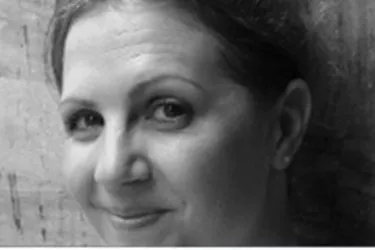Hey Google, what's Burnout?
Anne-Laure blogs about her experience of burnout, and how reaching out to her manager for help turned everything around.
Anne-Laure is an ex-Googler and the founder of Ness Labs, a venture studio building products around wellness and creativity. She also writes regularly about mental health at work.
Follow Anne-Laure on Twitter at @anthilemoonanthilemoon
This happened many years ago. I was feverishly refreshing my inbox every few minutes to see if the email I was waiting for would come in. It was a few days after I'd had my final interview at Google. A months-long process which, as you can imagine, had kept my stress levels high.
Then, it finally came in. The subject title was just “Update”. I opened it. “Everything is all good, I have full go-ahead to officially extend your offer!”
I couldn’t believe it. I was just offered my dream job. I could now finally relax.
But, when I started the job, I started doubting myself. So many smart, talented people. Surely they had made a mistake. Someone would realise sooner or later that I wasn’t good enough. I didn’t know it at the time, but these were classic symptoms of Imposter Syndrome.
As a result, I decided to work really hard. I would say yes to everything. Someone needed a hand with a project? Of course, I was happy to help. A last minute presentation to finish? I would cancel my dinner plans.
"I'd never had even one cup of coffee in my life before then, but it quickly became a morning ritual just so I could keep my eyes open."
I was doing really well performance-wise, but I was getting very little sleep. I'd never had even one cup of coffee in my life before then, but it quickly became a morning ritual just so I could keep my eyes open.
I was sent to San Francisco for a week-long training. There were many projects happening back in London that needed to progress. So I would take calls in the middle of the night to make sure everything would run smoothly.
One night, I was giving an update to a colleague over a video call, and when he questioned the methodology I used for a small research project, I started crying. Right during the call. I had to pretend the connection was bad so we could keep discussing the day after.
I told a colleague I had become close to about it. I said I may not be fit for the job. “This is burnout,” she said. “I went through something similar when I started. You’re doing great work, you’re just putting too much pressure on yourself. You should talk to your manager.”
"Work is all about finding the right people for the right tasks, not about trying to do as much work as possible yourself."
I was lucky that I had an amazing manager that I was feeling close to. We had started at Google on the very same day, and she too was working really hard.
When I got back to London, I decided to tell her about what I was going through. She was incredibly understanding. We sat down and reviewed all of my projects together. Which ones actually aligned with our core business objectives? Which ones would be better managed by someone else? There were things that were so new to me that they were taking me hours, whereas someone who had been at Google for years could do it with their eyes closed.
She taught me that work is all about finding the right people for the right tasks, not about trying to do as much work as possible yourself.
"(My manager) established a team rule stating that we couldn’t send emails to each other after 8pm."
She also took responsibility for part of what I was going through. As a result of our conversation, she established a team rule stating that we couldn’t send emails to each other after 8pm. She also started checking in more often with everyone, not only to see how well we performed, but how well we felt.
After a few weeks, I started feeling better. I would spend more time with friends, started exercising again, and fell asleep more easily. I would also enjoy work much more than before.
"I wish more companies would create a culture where it is okay to reach out when struggling."
Today, I run my own company and still apply those rules about prioritisation and self-care in my day-to-day work. I also regularly write about mental wellness as a way to share some of what I learned with other people who may go through the same challenges, or may struggle with their mental health at work in the future.
I was lucky to have such a kind, understanding manager who genuinely cared about her team members. It allowed me to talk to her pretty early when I started experiencing the first symptoms of burning out. I wish more companies would create a culture where it is okay to reach out when struggling, so people can feel safe and can proactively take care of their mental health.

Related Topics

Information and support
When you’re living with a mental health problem, or supporting someone who is, having access to the right information - about a condition, treatment options, or practical issues - is vital. Visit our information pages to find out more.
Share your story with others
Blogs and stories can show that people with mental health problems are cared about, understood and listened to. We can use it to challenge the status quo and change attitudes.

















